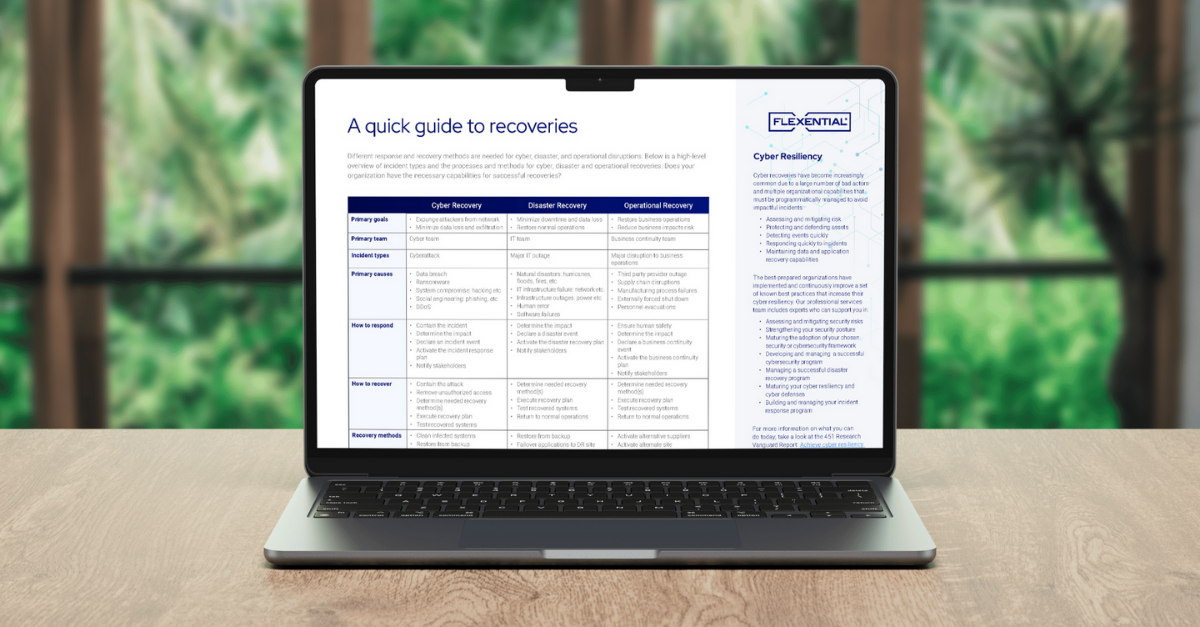Understanding data privacy laws: Navigating the rules and regulations
Discover essential insights on data privacy laws, including GDPR and CCPA, and learn how they protect personal information and empower individuals.

Understanding data privacy laws
What are data privacy laws?
Data privacy laws are designed to protect individuals by regulating how organizations collect, store, and use sensitive personal information. These laws ensure that people have more control over their data to protect them from misuse and minimize the risk of data breaches. They are crucial today, where vast amounts of personal information are constantly exchanged, often without individuals fully realizing the extent of its use.
While the specifics of these laws vary from country to country and state to state, their core objective remains the same: to give individuals more say over how their data is handled. Organizations, in turn, are held accountable for how they collect, process, and secure personal data. This includes implementing clear data handling policies, securing personal data against unauthorized access, and ensuring that the data collected serves a legitimate, necessary purpose.
In the context of global privacy laws, frameworks like the General Data Protection Regulation (GDPR) in the European Union have set the benchmark for data privacy. The GDPR introduced strict regulations on how companies collect, store, and use personal information, offering individuals unprecedented rights over their data, such as the right to access, rectify, or erase their personal data.
While GDPR applies across the EU, U.S. privacy laws are often sectoral or state-specific, contributing to a patchwork of regulations.
U.S. state-level regulations like the California Consumer Privacy Act (CCPA) and its update, the California Privacy Rights Act (CPRA), have influenced a wave of privacy legislation across the U.S., pushing companies toward greater transparency and accountability in how they handle data.
These regulations are helping shape the future of global data privacy standards, reflecting a growing demand for stronger data protection measures.
Key principles of a comprehensive data privacy law often include data minimization—ensuring that only the data necessary for a specific purpose is collected—and compliance with biometric data regulations, which govern how sensitive personal identifiers like fingerprints and facial recognition data are handled.
Enforcement mechanisms are in place to ensure that organizations comply with these laws, with non-compliance often leading to penalties, fines, and other regulatory actions.
US data privacy laws
Federal data privacy laws
The United States does not have a comprehensive federal data privacy law. Instead, data privacy is governed by sector-specific regulations and agency enforcement.
Federal agencies such as the Federal Trade Commission (FTC) and the Federal Communications Commission (FCC) play critical roles in overseeing consumer privacy protections.
The role of the FTC
The FTC has broad consumer protection authority under the FTC Act to regulate unfair or deceptive practices, including those related to data privacy. This agency has been pivotal in shaping U.S. privacy protections through enforcement actions targeting companies that misuse consumer data.
The FTC has used its authority to pursue companies for data breaches, misleading privacy policies, and inadequate data security measures.
Children’s Online Privacy Protection Act (COPPA)
A notable example of federal privacy regulation is the Children’s Online Privacy Protection Act (COPPA), which protects personal data from children under the age of 13. COPPA requires companies to obtain parental consent before collecting personal data from children, provide clear privacy notices, and ensure data security.
This law has led to high-profile enforcement actions, such as the $170 million fine imposed on YouTube for tracking minors' online activity without proper consent.
Gaps in broader data privacy protections
While COPPA provides important protections for children’s data, it leaves gaps in privacy regulations for adults. Legislative efforts such as COPPA 2.0 seek to expand protections to teenagers (ages 13-17) and impose stricter obligations on businesses handling youth personal data, but broader federal protections remain absent.
Legislative proposals for comprehensive Federal privacy law
Despite growing calls for a unified federal data privacy law, Congress has yet to pass a comprehensive framework. Proposals such as the American Data Privacy Protection Act (ADPPA) have aimed to address these gaps by establishing nationwide standards, but progress has been slow.
In the meantime, sector-specific regulations like the Health Insurance Portability and Accountability Act (HIPAA) for health data and the Gramm-Leach-Bliley Act (GLBA) for financial data continue to play crucial roles in protecting personal information.
Ongoing FTC enforcement
In the absence of comprehensive federal legislation, the FTC continues to fill the gaps by enforcing privacy laws and penalizing companies that fail to protect consumer data. Through its enforcement actions, the FTC holds companies accountable for data breaches and unfair practices, providing some level of federal oversight in an otherwise fragmented regulatory landscape.
State data privacy laws
In the absence of a comprehensive federal data privacy law, individual U.S. states have taken the lead in regulating how personal data is collected, stored, and used. As of 2024, 20 states have enacted comprehensive data privacy laws, with California, Virginia, and Colorado at the forefront of these efforts.
These state laws generally apply across multiple industries, although exceptions are often made for specific data types or organizations, such as small businesses or government entities.
California Consumer Privacy Act
California has been a trailblazer in comprehensive data privacy legislation with the California Consumer Privacy Act (CCPA). This law grants residents significant rights over their personal data, including the right to know what information is being collected, request deletion, and opt out of the sale of their personal data.
In 2023, the California Privacy Rights Act (CPRA) took effect, further strengthening the CCPA. The CPRA expands protections by establishing the California Privacy Protection Agency (CPPA) to enforce these rules and enhancing rights related to sensitive personal data, such as biometric and health information.
Virginia and Colorado
Following California’s example, Virginia and Colorado enacted similar privacy legislation. Virginia’s Consumer Data Protection Act (VCDPA) and Colorado’s Colorado Privacy Act (CPA) provide residents with rights to access, correct, and delete their personal data.
These laws also allow individuals to opt out of data processing for targeted advertising and require companies to offer data portability, allowing users to transfer their data between providers.
Other states
Several other states, such as Connecticut, Utah, and Delaware, have passed their own comprehensive privacy laws, each addressing unique local concerns. For instance, Connecticut’s law includes additional protections for children’s personal data, while Delaware’s legislation heightens the definition of sensitive data and provides enhanced protections for targeted advertising practices.
Emerging legislation
In addition to states with existing laws, other states—such as Massachusetts, Pennsylvania, and North Carolina—have introduced privacy bills that are expected to pass soon. These emerging laws reflect the continuous evolution of privacy regulation across the U.S., signaling that more states may soon join the growing list of those with comprehensive privacy laws.
Compliance challenges for businesses
As more states enact their own data privacy laws, the complexity of compliance grows significantly. Businesses must navigate not only federal guidelines and sector-specific regulations but also the varying requirements of individual state laws. These laws often differ in key areas, such as consumer rights, enforcement mechanisms, and data breach notification requirements.
For instance, businesses operating across multiple states may need to implement different processes for responding to data subject requests. Under California’s CCPA and CPRA, individuals can request the deletion of their data or opt out of its sale, while Virginia’s VCDPA grants rights to correct inaccurate data and opt out of targeted advertising. Ensuring that systems are flexible enough to comply with varying rules can be resource-intensive and operationally complex.
Additionally, state laws may have different definitions of personal data, sensitive data, and thresholds for compliance. What qualifies as sensitive data in one state might not in another, meaning companies need to maintain a clear understanding of each jurisdiction’s specific criteria to avoid fines and penalties.
Inconsistent enforcement standards between states also pose a challenge. While California has established the CPPA as an enforcement body, other states may rely on existing consumer protection agencies. Businesses need to be prepared for audits and investigations from multiple regulatory bodies, which can further complicate compliance.
Finally, businesses must account for the cost of compliance. Staying current with each state’s evolving regulations may require continuous updates to policies, staff training, data management tools, and legal reviews. Smaller businesses, in particular, may find the cost and complexity of meeting these multi-jurisdictional requirements overwhelming.
Data protection best practices
Personal data minimization
Data minimization is a fundamental principle of data privacy, requiring businesses to collect and process only the personal data necessary for specific purposes. This approach helps companies mitigate the risk of data breaches, reduce liability, and enhance compliance with regulations like GDPR and the CCPA.
Data minimization is also closely aligned with the principles of privacy by design and privacy by default, as outlined in Article 25 of the GDPR. These concepts encourage organizations to integrate privacy protections into their systems and processes from the outset, rather than retrofitting them later.
By applying privacy by design principles, companies ensure that data minimization and security are built into every stage of their data lifecycle—from collection to deletion—while privacy by default ensures that the strictest privacy settings apply by default unless the user opts otherwise.
Together, these principles further emphasize the importance of limiting the data collected and processed, minimizing exposure of data subjects to risks.
Beyond limiting the personal data gathered, data minimization pushes organizations to regularly evaluate their data collection practices. Collecting excessive or unnecessary information not only increases risks but also exposes businesses to potential non-compliance with privacy laws that explicitly mandate data minimization.
Best practices for data minimization:
- Collect only what’s necessary: Businesses should ensure all collected data serves a clear, lawful purpose.
- Review and limit data fields: Regularly review data fields to ensure only necessary information is collected. For instance, instead of collecting a full date of birth, asking only for the year may be sufficient for verification purposes in certain contexts.
- Data retention policies: Data retention policies are crucial to storing personal data only as long as necessary. This includes establishing specific timeframes for how long data should be retained, after which it should either be deleted or anonymized.
- Pseudonymization and anonymization: Pseudonymization (replacing identifiable information with artificial identifiers) and anonymization (removing personal identifiers) help protect privacy. These practices ensure that even if data is accessed by unauthorized parties, it cannot easily be traced back to an individual. Both techniques are encouraged under frameworks like the GDPR to help minimize privacy risks.
- Data governance framework: A strong data governance framework ensures consistent application of data minimization principles across the organization. This involves clear policies for data collection, processing, access, and retention, as well as regular audits to ensure compliance.
- Training and awareness: Train employees handling personal data in minimization practices. This includes ensuring they understand the importance of collecting only essential data and being aware of the legal obligations tied to data privacy regulations.
By adhering to data minimization principles, businesses not only protect sensitive information but also demonstrate a proactive commitment to privacy. This approach reduces the risk of regulatory fines, builds trust with consumers, and ensures smoother compliance with data protection laws globally.
Why data minimization matters
With the rising number of data breaches and growing awareness among privacy-conscious consumers, businesses face increasing pressure to handle personal data responsibly. Data minimization is a practical approach to reduce the amount of sensitive information a business holds, thereby limiting the potential impact if a breach occurs.
By minimizing personal data collection and enforcing strict retention policies, businesses not only mitigate financial risks but also build consumer trust by demonstrating a strong commitment to privacy protection.
Enforcement and compliance
Enforcement actions and settlements
Non-compliance with data privacy laws can result in significant enforcement actions and costly settlements for businesses. Regulators take violations of privacy regulations seriously, particularly as data breaches and privacy mismanagement become more frequent and impactful.
These enforcement actions hold organizations accountable for failing to meet legal data protection standards, with penalties ranging from fines to mandated corrective measures.
Types of enforcement actions
- Fines and penalties: Monetary fines are the most common enforcement action. Regulatory bodies like the FTC, EDPB, and CPPA impose penalties ranging from minor amounts to multi-million-dollar fines, depending on the severity of the breach. For example, under GDPR, fines can reach up to 4% of global revenue or €20 million, whichever is higher, as seen in the £20 million fine against British Airways for compromising 400,000 customer records.
- Types of enforcement actions: DPAs play a critical role in investigating and enforcing privacy laws. In the EU, each member state has its own DPA responsible for overseeing compliance. DPAs issue fines, conduct audits, and investigate complaints. They also provide guidance to help organizations comply with data privacy regulations across industries.
- Lawsuits and litigation: Individuals or groups affected by privacy violations can file lawsuits, often leading to class-action settlements. For example, Facebook (Meta) settled for $725 million in 2022 for its role in the Cambridge Analytica scandal, which involved misuse of personal data.
- Regulatory investigations: Regulatory agencies may initiate investigations into suspected non-compliance, often triggered by data breaches, complaints, or audit findings. These investigations can result in fines, corrective measures, or new policies aimed at preventing future violations.
Settlements and corrective actions
Many enforcement actions are settled with organizations agreeing to pay fines and implement corrective measures to avoid further penalties. These settlements typically include:
- Monetary penalties: Fines are imposed based on the severity of the violations.
- Corrective actions: Companies may be required to improve security practices, update privacy policies, or enhance employee training on data protection to prevent future breaches.
- Compliance monitoring: Some settlements include ongoing regulatory monitoring, which can involve regular audits, compliance reports, and third-party oversight to ensure adherence to privacy laws.
For instance, after the 2020 Equifax data breach, the company was mandated to pay up to $700 million in fines and settlements, provide ongoing credit monitoring for affected individuals, and upgrade its security protocols.
Reputational damage and loss of trust
Non-compliance with data privacy laws can damage a company’s reputation beyond financial penalties. Publicized breaches or enforcement actions can erode consumer trust, and rebuilding that trust often takes years. As a result, businesses may face customer loss, decreased sales, and diminished investor confidence.
For example, the Yahoo! data breach, which impacted 3 billion user accounts, not only led to substantial financial penalties but also severely tarnished the company’s reputation, ultimately contributing to its sale at a reduced valuation.
The importance of compliance
With consumers increasingly aware of their privacy rights, robust data protection practices are more critical than ever. Beyond avoiding fines and penalties, compliance with privacy laws fosters long-term trust among customers, investors, and partners.
By regularly updating security measures, training employees, and staying informed on regulatory changes, businesses can reduce the risk of enforcement actions and operate more securely in a data-driven world.
A proactive approach—including regular audits, the use of compliance platforms, and a solid understanding of evolving privacy laws—helps organizations safeguard their data and avoid the costly consequences of non-compliance
Compliance platforms and tools
Navigating the complex web of data privacy laws is a challenge for organizations, particularly those operating across multiple regions with varying regulatory requirements. However, businesses can streamline their compliance efforts by leveraging a variety of compliance platforms and tools designed to manage personal data securely and responsibly.
These tools not only ensure regulatory adherence but also provide valuable insights into how data is handled within the organization, reducing the risk of breaches and penalties.
Data mapping and inventory software
A key tool for data privacy compliance is data mapping and inventory software. This software helps organizations create a comprehensive map detailing where personal data is stored, how it is processed, and who has access to it. By maintaining an accurate inventory, businesses can adhere to crucial privacy laws like data minimization and lawful data processing.
For example, data mapping tools allow businesses to assess whether they are collecting unnecessary or outdated data, a violation of regulations like the GDPR and the California Consumer Privacy Act (CCPA).
These tools also ensure businesses are prepared to meet data access or deletion requests promptly, ensuring compliance with privacy laws while fostering transparency.
Consent management platforms
Consent management platforms (CMPs) are vital for businesses that interact directly with consumers. Under data privacy regulations, obtaining and managing user consent is a legal requirement before collecting or processing personal data.
CMPs streamline the process by handling requests, storage, and tracking of user consent.
These platforms enable organizations to clearly communicate their data collection practices, promoting transparency and empowering consumers to make informed decisions about their personal data. CMPs also ensure consent is collected in compliance with legal standards, providing proof of consent if questioned by regulatory authorities. Additionally, they allow businesses to respect user preferences by offering mechanisms for users to opt in or out of data collection activities.
Data Protection Impact Assessment (DPIA) tools
Organizations are required to perform a Data Protection Impact Assessment (DPIA) before engaging in high-risk data processing activities, such as adopting new technologies that handle personal data.
DPIA tools assist businesses in navigating this process by identifying potential risks to personal data and implementing controls to mitigate those risks. These tools are essential for ensuring compliance with data protection laws, like the GDPR, by addressing privacy concerns before violations occur.
By conducting DPIAs early, companies integrate data protection into the foundation of their operations, reducing the likelihood of non-compliance. DPIA tools typically offer features such as risk scoring, workflow management, and automated reporting, helping businesses adopt a structured, compliant approach when assessing new projects or processes that involve sensitive personal data.
Data Subject Access Request (DSAR) tools
As consumers become more aware of their rights under data privacy laws, businesses must efficiently manage Data Subject Access Requests (DSARs). These requests allow individuals to inquire about the personal data a company holds, how it is processed, and whether it has been shared with third parties.
DSAR tools automate the gathering, reviewing, and delivering of this information, ensuring that businesses can respond within the legally mandated timeframes. These tools help reduce the administrative burden by streamlining processes across departments, ensuring that responses are both comprehensive and accurate. By leveraging DSAR tools, companies remain compliant with privacy regulations like the GDPR and CCPA, while minimizing risks related to mismanagement of personal data requests.
Compliance management dashboards
Compliance management dashboards allow businesses to monitor their real-time compliance status across multiple regulations and jurisdictions. These platforms act as a central hub for managing data protection activities, such as reporting, auditing, and tracking compliance efforts across various departments. By integrating with other compliance tools, dashboards provide a comprehensive view of an organization’s data protection assessments and overall privacy performance, helping identify areas for improvement.
Through automation, compliance dashboards streamline routine tasks like auditing data processing activities and tracking compliance obligations across different regions. They simplify oversight, enabling companies to stay ahead of regulatory changes and proactively respond to emerging threats. These insights ensure that businesses not only meet current compliance requirements but are also better equipped to adapt to evolving data privacy laws.
AI and automation in compliance
As data privacy regulations grow more complex, many businesses are adopting Artificial Intelligence (AI) and automation tools to manage compliance. These advanced technologies monitor data flows in real-time, flagging risky behaviors and automatically generating compliance reports, which reduces the manual burden on compliance teams.
AI-driven platforms can handle key compliance tasks such as tracking user consent, managing data subject access requests (DSARs), and ensuring adherence to global privacy regulations. This automation enhances accuracy and reduces the risk of non-compliance, making it easier for businesses to navigate evolving data privacy requirements.
As comprehensive data privacy legislation continues to advance, AI and automation will play a pivotal role in helping organizations maintain strong privacy practices and keep up with regulatory changes.
Flexential has you covered
Navigating the complexities of data privacy laws can be overwhelming, but with the right strategies, tools, and partners, businesses can ensure compliance and protect the personal data they collect and handle.
Businesses need to be proactive in managing data privacy and protection risks, from understanding federal and state regulations to adopting best practices like data minimization.
Flexential offers comprehensive compliance management services to help your organization stay ahead of regulatory requirements and safeguard sensitive information. With solutions tailored to meet your data protection needs, Flexential ensures you’re equipped to handle data privacy challenges confidently.
Learn more about how Flexential can support your compliance efforts at Flexential Compliance Management Services.









